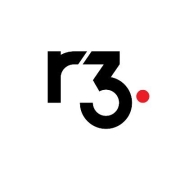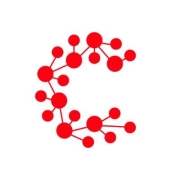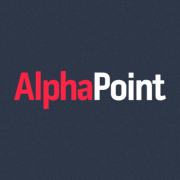Enterprise Blockchains enable secure and efficient transactions across organizations, improving transparency and reducing operational costs. This technology is transforming the way businesses interact, providing a reliable framework for data exchange.
The top 5 Enterprise Blockchain solutions are Corda, Casper, Hyperledger Fabric, Ethereum and AlphaPoint Platform, as ranked by PeerSpot users in September 2025. Corda received the highest rating of 0.0 among the leaders. Hyperledger Fabric is the most popular solution in terms of searches by peers and holds the largest mind share of 43.1%.
Enterprise Blockchains offer shared, tamper-proof ledgers that cater to the needs of complex business ecosystems. By allowing real-time data sharing, these solutions enhance collaboration among stakeholders. Solutions in this domain provide robust security features, ensuring data integrity and privacy while supporting scalable and flexible network configurations.
What are the critical features of Enterprise Blockchains?Enterprise Blockchains have been widely implemented in industries such as finance, supply chain, and healthcare. In finance, they enable quick settlement of transactions and improved audit trails. Supply chain participants benefit from increased visibility, allowing for better inventory management. Healthcare institutions use these solutions for secure patient data handling and compliance with regulations.
Organizations turning to Enterprise Blockchains find that these solutions enhance operational efficiency and data integrity, making them a valuable tool for managing business interactions securely and transparently.
| Product | Market Share (%) |
|---|---|
| Hyperledger Fabric | 43.1% |
| Ethereum | 34.5% |
| Corda | 13.8% |
| Other | 8.600000000000009% |





Enterprise Blockchains increase supply chain transparency by providing a secure, immutable ledger accessible to authorized stakeholders. This enhances traceability and accountability across the supply chain, reducing fraud and inefficiencies. As data entries are permanent and time-stamped, you can easily track the journey of goods from origin to destination, building trust among partners and consumers.
What are the benefits of using Enterprise Blockchains in finance?Implementing Enterprise Blockchains in finance offers faster transaction processing, reduced costs, and enhanced security. You gain real-time access to financial data, improving auditability and compliance. This technology also facilitates seamless cross-border payments and eliminates the need for intermediaries, which can further streamline operations and reduce overhead.
Why is smart contract integration important in Enterprise Blockchains?Integrating smart contracts in Enterprise Blockchains automates contractual processes, offering efficiency and reducing human error. As they self-execute when conditions are met, you reduce the need for intermediaries. This feature enhances reliability and ensures transactions are accurately recorded, aiding in complex workflows like those found in supply chain management and finance.
How do Enterprise Blockchains enhance data security?Enterprise Blockchains enhance data security through their decentralized nature, which makes them more resilient to cyberattacks. The cryptographic protections and consensus mechanisms ensure that data is tamper-proof, providing an added level of security. When you deploy Enterprise Blockchains, you safeguard sensitive information and maintain data integrity.
What role do Enterprise Blockchains play in identity verification?Enterprise Blockchains play a crucial role in identity verification by providing a secure and efficient form of digital identity management. Utilizing blockchain's immutable nature, you can securely verify user identities in real time. This reduces identity theft risk and streamlines access to services, making the process quicker and more reliable for businesses and individuals alike.